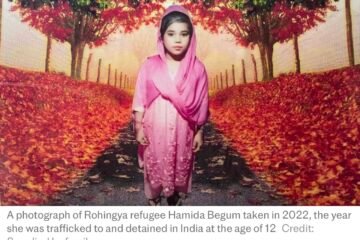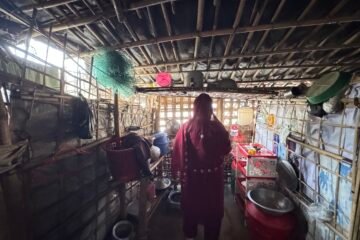
The Rohingya crisis has led to the displacement of thousands of families, including children, who are now living in refugee camps. It is crucial to prioritize the education of Rohingya children in these camps, as it plays a vital role in their overall development and future prospects.

One of the key challenges faced by Rohingya children is the lack of access to quality education. Many of them have been forced to leave their homes and schools, resulting in a disruption to their education. It is essential to provide them with the necessary support to continue their education and prevent a lost generation.
It is our collective responsibility to support the Rohingya community and provide them with the necessary resources and assistance. By investing in their education, healthcare, and shelter, we can help them live a dignified life and empower them to rebuild their future.
Arabic education is also important for Rohingya children, as it allows them to preserve their cultural and religious identity. By providing Arabic education, we can help them maintain a sense of belonging and strengthen their connection to their roots.
Speaking of diseases, the Rohingya community is facing a significant increase in chronic illnesses. Unfortunately, due to limited resources and infrastructure in the refugee camps, there is a lack of proper medical treatment for these conditions. Urgent action is required to address this issue and provide the necessary healthcare facilities.
In addition to education and healthcare, the Rohingya community also needs strong shelters to protect them from the harsh weather conditions, especially during the monsoon season. The refugee camps are prone to disasters such as floods and landslides, which can further worsen the living conditions of the Rohingya people


